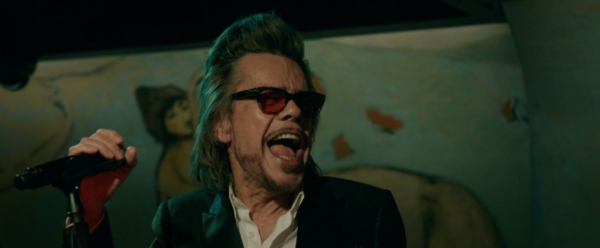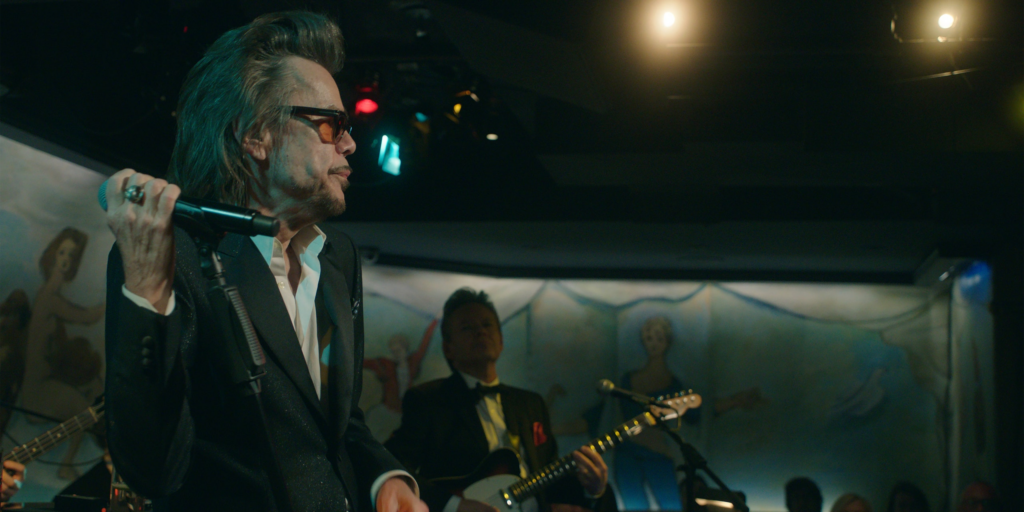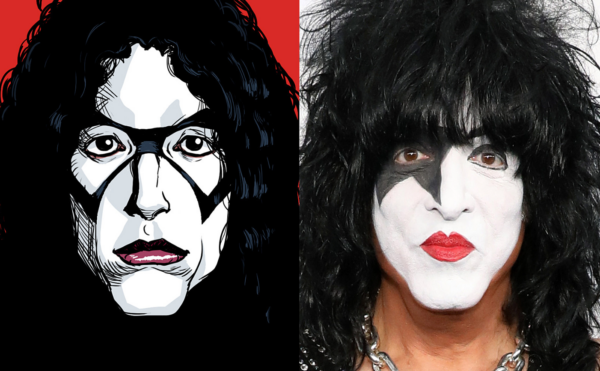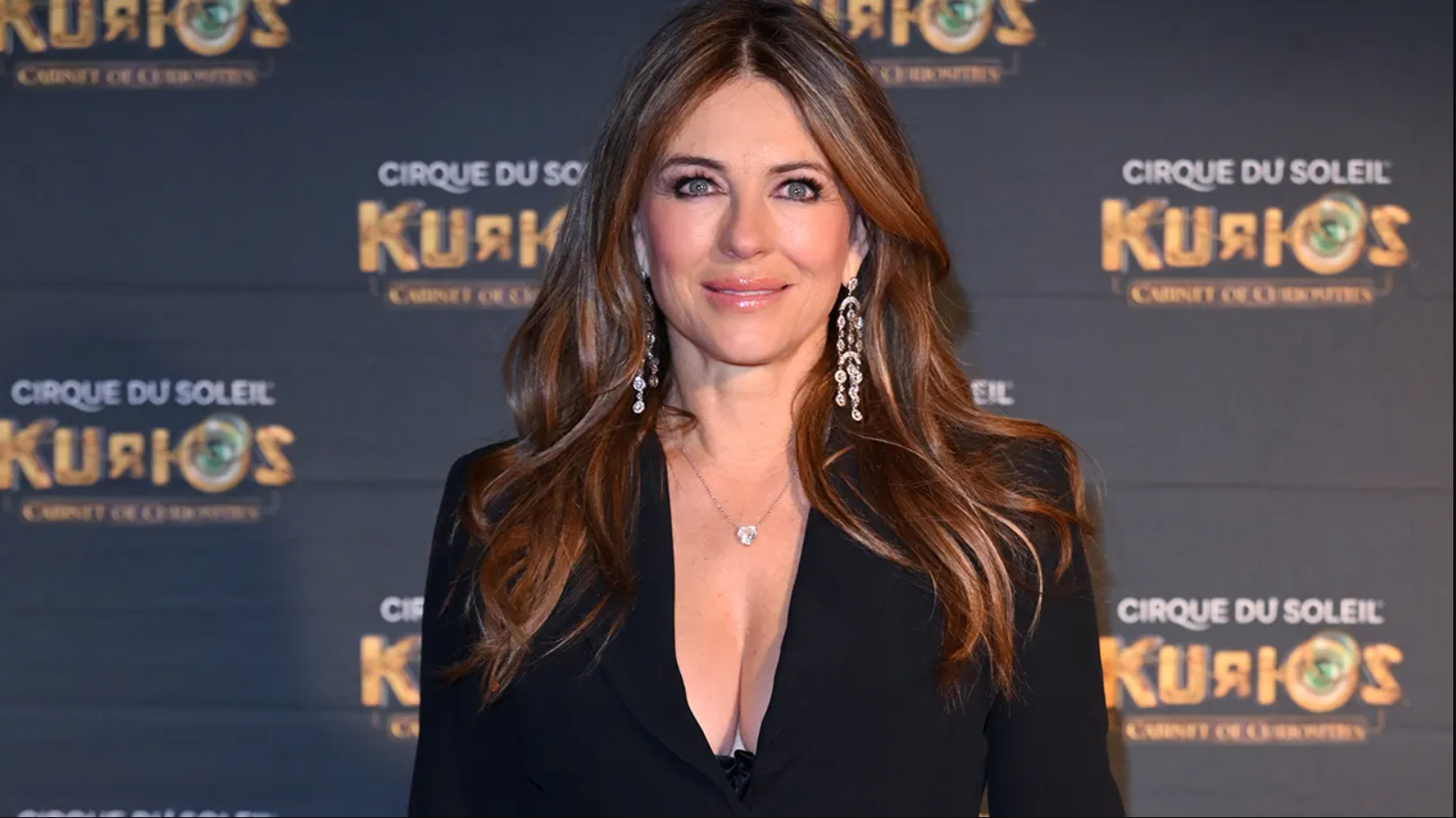
Personality Crisis: One Night Only 2023
Being a child of the 1980s, my first encounters with Buster Poindexter were likely ones that his alter ego David Johansen would like to forget: his supporting performance in “Scrooged” and the one-hit wonder success of “Hot Hot Hot,” which the artist calls “the bane of my existence” in a new documentary directed by David Tedeschi and Martin Scorsese titled “Personality Crisis: One Night Only.”
Much more a concert film than a biopic, Tedeschi and Scorsese’s film intercuts archival and interview footage with the singer’s January 2020 cabaret performance in a manner that feels intuitively authentic to its subject. Poindexter mentions near the conclusion that he enjoys leaving people uncertain and that ambiguity is beneficial to art.

I was able to comprehend the documentary on a deeper level after hearing these statements. “One Night Only” gave me a much greater appreciation of Johanssen as a singer and songwriter, but I suspect the doc will play even better to people who know more than I do about the foundational era of ’70s NYC punk.
Table of Contents
ToggleJohansen’s art is defined by this surprising blend of anarchy and humor.
In an archival interview, Morrissey describes The New York Dolls as “extremely violent, extremely witty, and extraordinarily intelligent.” This unpredictable mix of anarchy and wit has characterized Johansen’s artistic career, and it is on exhibit in all of the performances and outstanding interviews in this project.
Scorsese and Tedeschi, who edited “No Direction Home: Bob Dylan,” “Shine a Light,” and “Rolling Thunder Revue,” among others, are able to coax an unquestionably reclusive man out of his cocoon without forcing the issue. “One Night Only” is most effective if you have no expectations for a conventionally illuminating bio-documentary. This film is not that one. Nonetheless, it makes the emotional moments that do come through stronger, such as when Johansen sounds caught up during a song or simply belts out one of his great lyrics.

Consequently, it is impossible to leave this undertaking without having a larger appreciation for Johansen as an artist. The devilish brilliance of his voice at this point in his career reminded me of the pleasure I derive from contemporary poets such as Tom Waits and Nick Cave. He’s seen a lot and become a fantastic storyteller, but he’s viewed the majority of it with a wink and a sly grin.
“One Night Only” is the tale of a man who spent his entire life surrounded by music and knew how to channel those influences through a distinctive voice. The film is occasionally too lengthy, but its subject justifies its length. He has a phenomenal voice and an abundance of personality.
The finest aspects of “One Night Only” are the archival footage and interview segments that serve as a visual accompaniment to his performance.
He mentions Maria Callas, so why not include a video clip of her? After mentioning Morrissey as one of the earliest Dolls’ greatest admirers, they insert a clip of him performing from that era. Is it required? No, but it gives the film a distinct, organic tone, one that meanders in and out of history and music and is rewarding once you adapt to its wavelength. Similar to Johansen’s career, this documentary requires a different approach than the typical concert film or bio-doc. It is worth the trouble.
Tonight, Showtime will air.


